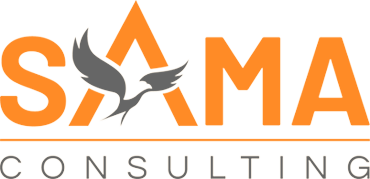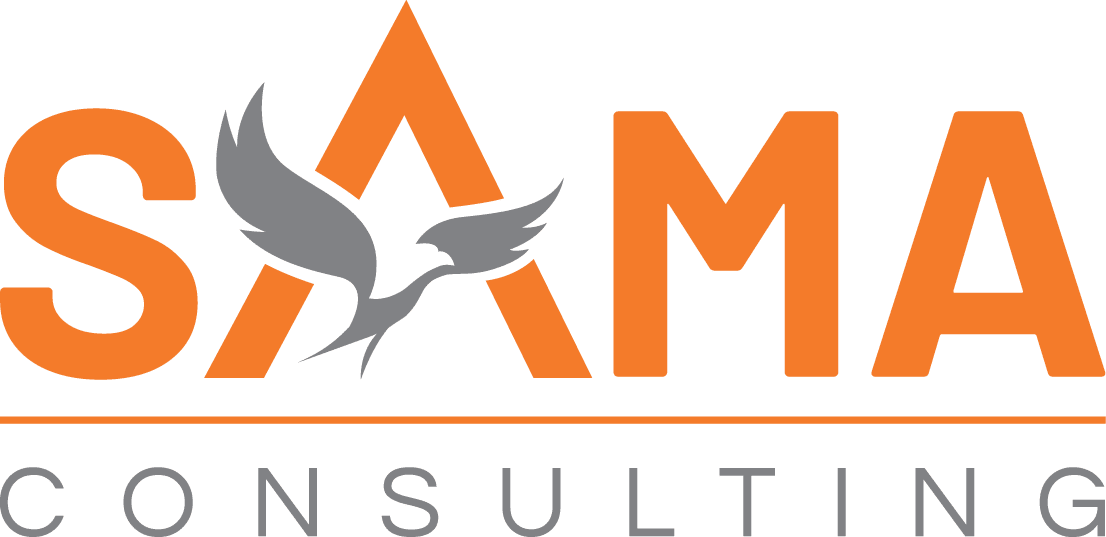
The 10 Best ERP Systems in the World : A Comprehensive Review
In the dynamic world of enterprise resource planning (ERP), choosing the right system can be crucial for streamlining operations, enhancing efficiency, and fostering growth. As businesses increasingly rely on technology to navigate complex market environments, the role of sophisticated ERP solutions becomes all the more critical. This article delves deep into the top 10 ERP systems globally, providing a detailed review to help businesses make informed decisions.
1. Infor CloudSuite
Infor CloudSuite is tailored for industry-specific needs, offering solutions for sectors such as healthcare, manufacturing, and retail. Its cloud-native architecture ensures scalability and flexibility, making it a favorable choice for businesses looking to leverage cloud technology. Key features include:
Key Features
- Industry-specific solutions: Tailored capabilities that cater to unique industry requirements, reducing the need for extensive customization.
- Cloud-native architecture: Ensures enhanced security, scalability, and performance.
- Coleman AI: AI platform that provides predictive analytics and automated tasks.
Benefits
- Reduced IT overhead: Cloud deployment minimizes the need for local hardware and IT staffing.
- Personalized user experience: Increases user engagement and productivity through a modern interface.
- Insight-driven operations: AI and analytics drive smarter, data-led decisions.
Need any help with Infor Cloud Suite? Click Here
2. SAP S/4HANA
SAP S/4HANA stands as a leader in the ERP market, known for its powerful capabilities in handling complex business processes. Built on SAP’s advanced in-memory platform, SAP HANA, this system offers real-time processing speeds and a highly intuitive user interface. Its strengths include:
Key Features
- In-memory computing: SAP S/4HANA operates on the SAP HANA platform, which allows for processing large amounts of data in real-time.
- SAP Fiori UX: This user interface provides a responsive and intuitive user experience across various devices and platforms.
- Advanced analytics: Integration with SAP Analytics Cloud enables powerful data visualization and decision-making capabilities.
Benefits
- Increased efficiency: Real-time data processing speeds up business operations and reduces latency.
- Scalability: Whether on-premise, cloud, or hybrid, the system grows with your business needs.
- Enhanced decision-making: Real-time insights help businesses respond quickly to market changes.
3. Oracle ERP Cloud
Oracle ERP Cloud is renowned for its comprehensive suite that integrates financials, procurement, project portfolio management, and more, all within a cloud environment. It’s particularly favored by large enterprises for its depth and breadth of features. Highlights include:
Key Features
- Complete integration: Seamlessly connects financials, procurement, project management, and more into one cloud system.
- Machine learning: Automates routine tasks and offers intelligent suggestions.
- Extensive customization: A powerful development platform for tailoring functionalities.
Benefits
- Comprehensive functionality: Supports a wide range of business processes, making it ideal for large enterprises.
- Robust security measures: Keeps business-critical data secure with advanced security protocols.
- Future-proof investment: Regular updates and innovations keep the system at the cutting edge.
4. Microsoft Dynamics 365
Microsoft Dynamics 365 merges CRM and ERP capabilities, providing a unified solution that facilitates a seamless flow of information across the business. It’s highly adaptable and integrates well with other Microsoft products, which enhances productivity. Notable advantages are:
Key Features
- Unified CRM and ERP: Integrates data across the business, improving coordination and efficiency.
- Adaptability: Easily adjusts to business changes with modular applications and scalable cloud services.
- Deep Microsoft integration: Works seamlessly with Office 365, Outlook, and other Microsoft products.
Benefits
- Enhanced collaboration: Streamlines communication across different departments.
- Innovative AI capabilities: Offers predictive insights to optimize business outcomes.
- Familiar user experience: Reduces learning curve due to integration with commonly used Microsoft applications.
Need help with your ERP evaluation process?
We will provide a detailed, unbiased evaluation by assessing your business needs, shortlisting vendors, analyzing cost benefits, planning implementation, and mitigating risks.

5. Oracle NetSuite
Oracle NetSuite offers a versatile, all-in-one cloud solution that supports a variety of industries including software, retail, and wholesale distribution. Its global reach and scalability make it ideal for mid-sized businesses aiming for growth. Strengths include:
Key Features
- Global cloud ERP: Ideal for businesses looking to expand internationally with multi-language and multi-currency support.
- Real-time metrics: Dashboard-driven insights into financials, sales, and operational performance.
- SuiteSuccess methodology: Ensures fast deployment based on leading practices.
Benefits
- Scalable growth: Supports businesses as they grow, without needing physical IT expansions.
- Comprehensive visibility: Offers a clear view of business operations to improve efficiency and decision-making.
- Industry-specific best practices: Provides out-of-the-box solutions tailored to industry needs.
6. Epicor Kinetic
Epicor Kinetic (formerly Epicor ERP) specializes in manufacturing ERP, providing tools that cater specifically to the needs of manufacturers. It’s known for its flexibility and deep industry functionality. Key features are:
Key Features
- Focus on manufacturing: Specialized tools for manufacturing processes, including MES and PLC integration.
- Cloud or on-premise deployment: Flexibility in how and where the software is deployed.
- Mobile-first design: Accessible on mobile devices, facilitating on-the-go management.
Benefits
- Industry expertise: Deep understanding of manufacturing needs, leading to better alignment with business processes.
- Customizable workflows: Tailored to fit unique operational requirements.
- Enhanced productivity: Mobile capabilities ensure that management and staff are always connected.
7. IFS Cloud
IFS Cloud is designed for companies in the aerospace, construction, and energy sectors, offering tailored functionalities to manage their unique challenges. It excels in asset management and service-focused capabilities. Highlights include:
Key Features
- Component-based architecture: Allows companies to implement the suite in stages, according to business needs.
- Service-centric focus: Strong capabilities in managing field services, asset maintenance, and project management.
- IoT integration: Leverages connected devices to enhance data accuracy and operational efficiency.
Benefits
- Flexibility and agility: Modular design adapts to business changes and growth.
- Enhanced asset management: Improves lifecycle management and reduces downtime.
- Innovative technology use: Employs the latest technologies to drive business efficiency.
8. Sage X3
Sage X3 (also known as Sage Business Cloud X3) is suited for medium-sized companies looking for comprehensive ERP functionalities without the complexity of larger systems. It is particularly strong in financial management and business intelligence. Benefits include:
Key Features
- Fast implementation: Streamlined setup process reduces implementation time and cost.
- Flexible data management: Strong capabilities in handling complex data across multiple sites and countries.
- Integrated business intelligence: Offers powerful reporting and analytics tools built into the system.
Benefits
- Cost efficiency: Reduced implementation time lowers total cost of ownership.
- Operational agility: Quick adaptations to business changes with flexible data handling.
- Informed decision-making: Real-time data and analytics support strategic business decisions.
9. QAD
QAD focuses on manufacturing companies, providing a cloud ERP solution that supports agile and lean manufacturing practices. Known for its excellent customer support and community-driven enhancements, QAD helps manufacturers stay responsive to market changes. Key aspects are:
Key Features
- Fast implementation: Streamlined setup process reduces implementation time and cost.
- Flexible data management: Strong capabilities in handling complex data across multiple sites and countries.
- Integrated business intelligence: Offers powerful reporting and analytics tools built into the system.
Benefits
- Cost efficiency: Reduced implementation time lowers total cost of ownership.
- Operational agility: Quick adaptations to business changes with flexible data handling.
- Informed decision-making: Real-time data and analytics support strategic business decisions.
10. Acumatica
Acumatica offers a cloud-based ERP solution that stands out for its usability, comprehensive capabilities, and flexible licensing model which is attractive to small and mid-sized businesses. Its main strengths are:
Key Features
- Manufacturing focus: Designed specifically for the manufacturing sector with features that support lean manufacturing techniques.
- Adaptive UX: User interface adjusts to role and preferences, enhancing usability.
- Cloud-based: Offers reliability and scalability through cloud deployment.
Benefits
- Specialized support: Addresses the specific challenges of manufacturers, from shop floor to supply chain.
- User-friendly experience: Improves productivity with an adaptive, easy-to-use interface.
- Operational resilience: Cloud architecture ensures business continuity and flexibility.
Factors to Consider While Choosing an ERP System
- Business Size and Complexity: Larger, more complex organizations may require more robust systems like Infor CloudSuite, SAP S/4HANA or Oracle ERP Cloud, while smaller businesses might benefit from simpler, more cost-effective systems like Sage X3 or Acumatica.
- Industry Specificity: Some ERP systems offer specialized functionalities for specific industries. For example, Epicor Kinetic is ideal for manufacturing, while Infor CloudSuite provides tailored solutions for various industries.
- Total Cost of Ownership: Consider not only the initial costs but also long-term expenses including upgrades, customization, and support.
- Scalability: Ensure that the ERP system can scale as your business grows. Systems like Microsoft Dynamics 365 and Oracle NetSuite are particularly scalable.
- Integration Capabilities: The ability to integrate with existing systems and technologies is crucial. Systems that offer extensive integration capabilities can reduce overall IT complexity and costs.
- User Experience: A system with an intuitive user interface and good support can reduce training time and increase adoption rates across the organization.
Conclusion
Choosing the right ERP system depends on a myriad of factors, including industry specificity, scalability, ease of use, and integration capabilities. Each of the systems reviewed here offers unique strengths that cater to various business needs. As you consider the best ERP solution for your organization, it is essential to evaluate these systems against your specific requirements to ensure a perfect match that supports your business objectives and growth.
This in-depth review aims to guide you through the nuances of each system, providing the insight needed to make a well-informed decision. Whether you’re a small business or a multinational corporation, the right ERP system is a pivotal investment that shapes your company’s future in the competitive business landscape.
Need help with your ERP evaluation process?
We will provide a detailed, unbiased evaluation by assessing your business needs, shortlisting vendors, analyzing cost benefits, planning implementation, and mitigating risks.

